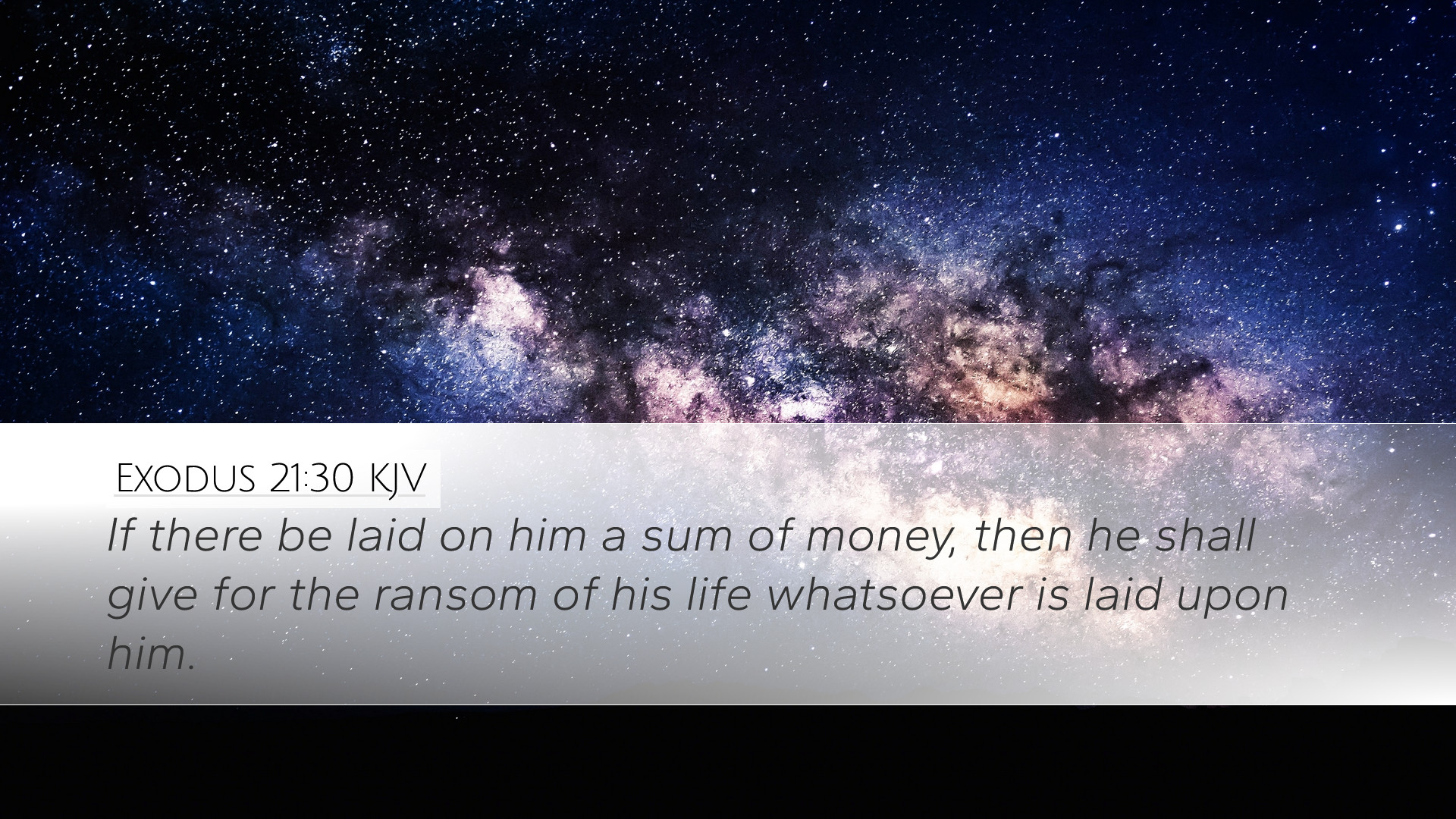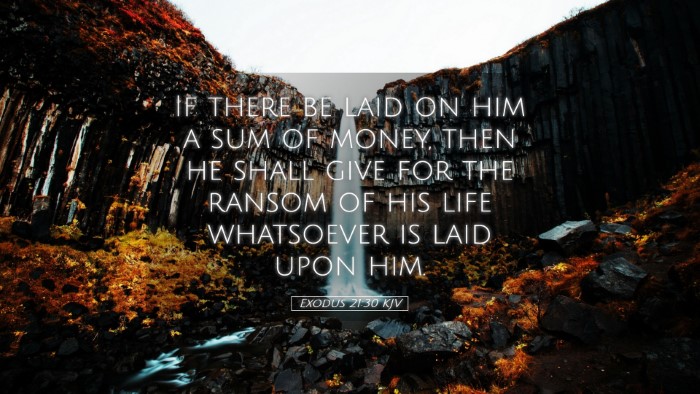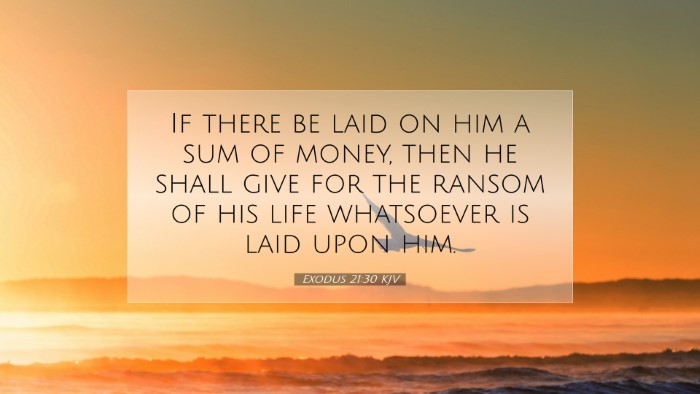Exodus 21:30 Commentary
Bible Verse: "If there be laid on him a sum of money, then he shall pay for the ransom of his life whatsoever is laid upon him."
Context of the Passage
This verse is situated within a broader section of the Law given to the Israelites, detailing laws regarding personal injuries, liabilities, and punishments. In Exodus 21, God provides a series of ordinances that govern social justice and highlight the balance between mercy and restitution within the community.
Commentary Insights
1. Matthew Henry's Perspective
Matthew Henry emphasizes that this verse reflects the principle of atonement and the valuation of life. He suggests that the law acknowledges the necessity of compensation for loss of life. It is a clear indication that life is precious and should be protected. He notes that the forced payment system establishes a contrast between the sanctity of life and the economic implications of a wrongful act.
2. Albert Barnes' Analysis
Albert Barnes focuses on the implications of this law in terms of justice and the responsibility of individuals. He observes that the payment laid upon the offender is not merely punitive, but a means to restore balance within the community. He brings attention to the idea that such laws were intended to prevent vigilantism and encourage a structured approach to conflicts, thus reflecting God’s desire for order among His people.
3. Adam Clarke's Insights
Adam Clarke elaborates on the theological implications of the ransom concept. He notes that the setting of a financial penalty illustrates a society’s need for restoring dignity and fairness. Clarke points out that this law was a precursor to the understanding of Christ as our ultimate ransom, highlighting a deeper spiritual redemptive truth that extends beyond the literal application. He stresses that the foresight of such laws speaks to God’s overarching plan for justice and mercy.
Theological Reflections
The implications of Exodus 21:30 extend far beyond the legal and into the realm of theology. The necessity of a ransom mirrors the Christian doctrine of atonement, where Christ serves as the fulfillment of this sacrificial system. This law foreshadows the greater sacrifice that would come, providing the framework for understanding how serious the consequences of sin are, and the lengths to which restoration must be achieved.
Societal Implications
In the societal context, this verse establishes a standard for accountability within the community. It serves as a deterrent against negligence and promotes a culture of responsibility. Understanding the background of the ancient Near Eastern laws provides further depth to the application of this verse; it outlines the importance of maintaining ethical standards and repercussions for wrongdoing in establishing a just society.
Application for Pastors and Theologians
Pastors and theologians can draw rich applications from this passage regarding the themes of justice, mercy, and restitution. It serves as a basis for preaching on the importance of upholding community standards and the need for accountability among believers. Additionally, it provides a platform for discussing the essence of Christ’s sacrifice — how He paid the ultimate ransom for humanity’s transgressions, thus inviting believers to participate in justice and mercy in their own lives.
Conclusion
Exodus 21:30 stands as a profound reminder of the intrinsic value of life, the necessity of justice, and the overarching theme of redemption woven through the scriptures. By examining historical, legal, and theological perspectives, we gain a holistic view of this passage, informing our practice and understanding of God's law and His plan for humanity.


